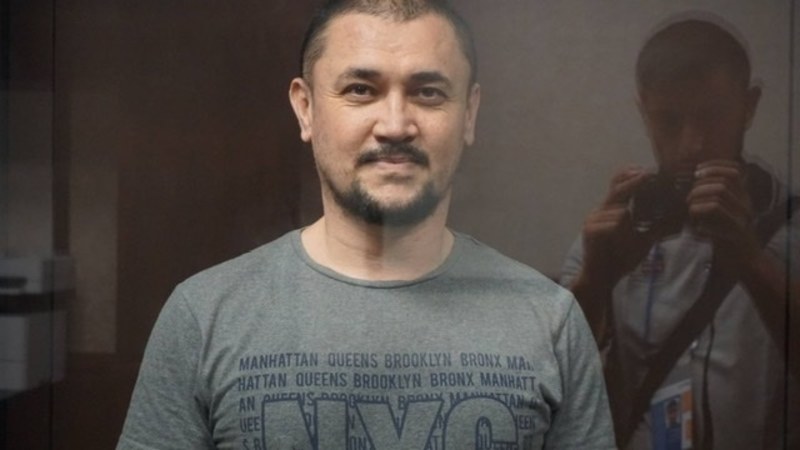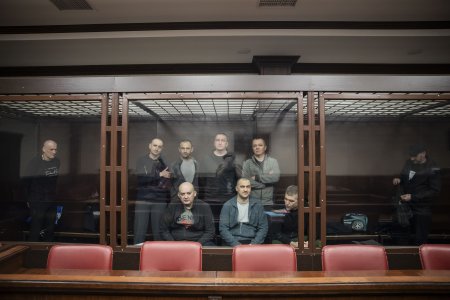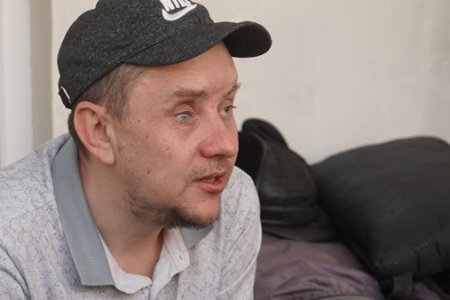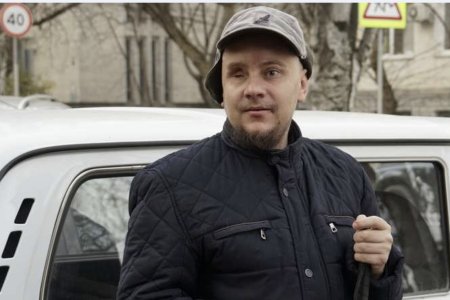
A Russian court of appeal has upheld the 11-year sentence against recognized Crimean Tatar political prisoner Vadim Bektemirov. The initial sentence had been passed on gravely flawed charges and equally inadequate charges, and the fast-track appeal rejection by ‘judge’ Dmitry Tepliuk from the Military Court of Appeal in Vlasikha (Moscow region) was baseless, but, unfortunately, predictable.
In his final address to the court, Bektemirov spoke of Russia’s deliberate persecution of Crimean Tatar Muslims.
“It had seemed to me, and to my Crimean Tatar people, that the times of communism were in the past, however our imagined liberation from communist ideology proved to be an opening into a world of weights and measurements that is even more totalitarian than that before. Seeing how they pin sentences [on Crimean Tatars] like pieces of lace, you involuntarily come to the conclusion that political reprisals of the entire people are underway.”
In June 2021, the authoritative Memorial Human Rights Centre recognized Bektemirov as a political prisoner, stating unequivocally that Russia was persecuting him for his faith and for his civic position. It pointed out that Russia was in violation of international law by applying its legislation on occupied territory and noted that prosecutions like that against Bektemirov are being used to persecute Crimean Tatars who opposed Russian annexation.
Bektemirov has a higher education in Islamic Studies, but worked as a translator to support his family. He also played an active part in the human rights movement which emerged in response to mounting repression under Russian occupation. He regularly attended political trials of fellow Crimean Tatars; helped get parcels, with food and other essential items, to political prisoners held in Crimea or Russia, as well as organizing collective prayers for them and their families. Such civic activism has led to a large number of Crimean Tatars and other Ukrainians being arrested in occupied Crimea, and on 7 July 2020, the FSB came for Bektemirov and six other Crimean Muslims. Not one of them was accused of a recognizable crime, only of unproven involvement in the peaceful transnational Muslim organization Hizb ut-Tahrir which is legal in Ukraine. Russia’s Supreme Court declared this organization ‘terrorist’ in 2003, in a secretive ruling which Vitaly Ponomarev from the Memorial Human Rights Centre believes was politically motivated. By spuriously claiming Hizb ut-Tahrir to be ‘terrorist’, Russia could justify sending refugees back to Uzbekistan where they faced religious persecution.
Bektemirov was charged, under Article 205.5 § 2 of Russia’s criminal code with ‘involvement’ in an entirely unproven Hizb ut-Tahrir ‘cell’. The ‘evidence’ in large part was provided by two ‘anonymous witnesses’. These individuals may never have set eyes on Bektemirov, yet they were allowed to ‘testify’ in secret, claiming that from 2015 to 2018 Bektemirov had taken them to conspiratory meetings of the supposed Hizb ut-Tahrir group, recruited new followers; held explanatory discussions in mosques; and also discussed the persecution of Muslims in Crimea. Bektemirov’s lawyer Emil Kurbedinov is convinced that one of these individuals is Adnan Masri, and says that he is appearing as a ‘secret witness’ not because he has anything to fear, but because he is, in fact, an FSB agent. Kurbedinov has amassed evidence demonstrating that Masri has played a similar role in at least five other ‘trials’, including those that resulted in huge sentences against recognized political prisoners Ruslan Zeytullaev and Enver Seitosmanov. There was also a video which, according to Kurbedinov, was illicitly made by an FSB agent in April 2015, in which Bektemirov essentially just expressed an opinion about Hizb ut-Tahrir.
Bektemirov is now 42, and has scarcely seen his third child and first son who was born 19 days after his arrest. Despite the lack of any grounds for his detention, he was prevented from being present at the funeral of his father who died of a heart attack two weeks after armed and masked ‘enforcement officers’ had burst into the family’s home and then taken his son away.
Bektemirov’s trial began at the notorious Southern District Military Court in Rostov-on-Don on 26 May 2021, with all of those involved in securing the scholar’s conviction having previously taken place in the persecution of other Ukrainians. Prosecutor Sergei Aidinov was involved in imprisoning 63-year-old Ukrainian activist Oleh Prykhodko and securing an effective death sentence against 64-year-old Zekirya Muratov. He demanded a 12-year harsh-regime sentence against Bektemirov with the first three years to be in a prison, the very worst of Russia’s appalling penal institutions.
During the ‘trial’, presiding judge Aleksei Abdulmazhitovich Magomadov, together with Kirill Nikolaevich Krivtsov and Sergei Fedorovich Yarosh effectively supported the prosecution by allowing secret witnesses and blocking questions from the defence proving the lack of any grounds, not only for such secret ‘testimony’, but for the very charges against Bektemirov. On 11 February 2022, these individuals handed down an 11-year sentence, with the first three years, as demanded by Aidinov, in a prison. It was this sentence which ‘judge’ Dmitry Tepliuk upheld on 3 April 2023, after making no pretence of properly considering the compelling grounds for dismissing the entire case.



